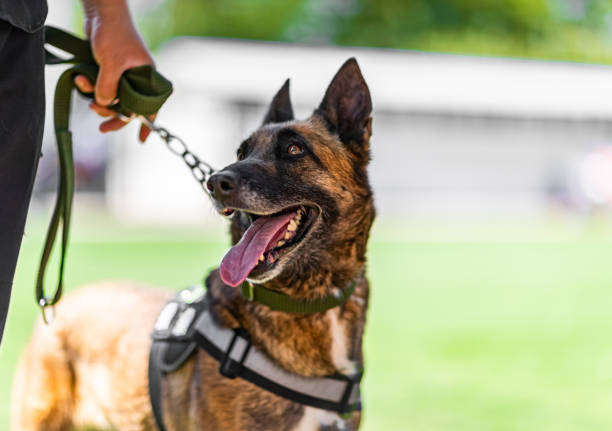The True Cost of Dog Training: What to Expect Per Session and How to Find the Right Fit
If you’ve found yourself searching for ‘how much does it cost per class?’ you’re already asking the right first question. However, the answer is rarely a single number. The investment for professional dog training can vary significantly, influenced by critical factors such as your dog’s specific behavioral challenges, the trainer’s methodology, and the format of the sessions. This guide will demystify the pricing structures you’re likely to encounter—from group classes to private in-home lessons—and equip you with a framework to evaluate not just the cost, but the true value of each option. To make an informed decision that benefits both you and your dog in the long run, the most crucial step is to first clearly define the dog training goals you aim to achieve.

Understanding the financial commitment of dog training is crucial when bringing a new furry family member into your home or addressing behavioral issues with your current pet. Professional dog training isn’t just an expense—it’s an investment in your dog’s future behavior, your peace of mind, and the quality of your relationship with your pet. Let’s explore what factors influence dog training costs and how to find the right trainer for your specific situation.
What Determines Dog Training Costs?
Several factors influence the price you’ll pay for dog training services. Location plays a significant role—urban areas typically command higher rates than rural settings due to higher operating costs. The trainer’s experience and credentials also impact pricing; certified professionals with years of experience and specialized education generally charge more than those just starting their careers.
The type of training needed is another major cost determinant. Basic puppy obedience classes are typically less expensive than specialized behavioral modification programs for issues like aggression or severe anxiety. Group classes cost less per session than private lessons, though they provide less individualized attention.
Finally, the training format affects pricing. In-home sessions, where trainers come to your residence, command premium rates compared to facility-based training. Board-and-train programs, where your dog stays with the trainer for an extended period, represent the highest price point but offer intensive training.
Average Cost Breakdown for Different Training Options
Dog training services come in various formats, each with its own price range. Group classes at pet stores or training facilities typically range from $30 to $80 per session, with courses usually running 4-8 weeks. These classes work well for basic obedience and socialization but may not address specific behavioral issues.
Private training sessions offer personalized attention and typically cost between $60 and $150 per hour-long session. These are ideal for dogs with specific behavioral challenges or owners who prefer individualized guidance.
Board-and-train programs, where your dog lives with the trainer for 2-4 weeks of intensive training, range from $500 to $2,500+ depending on the duration and location. While convenient, these programs require consistent follow-up to maintain results.
Day training, a middle-ground option where your dog trains during the day but comes home at night, typically costs $40-$80 per day, with packages often available at discounted rates.
Puppy Obedience Classes: Worth the Investment?
Puppy obedience classes typically range from $100 to $200 for a 4-6 week course and represent one of the most cost-effective training investments. These early classes help establish fundamental behaviors and prevent the development of problematic habits that could require expensive behavioral modification later.
Beyond basic commands, puppy classes provide crucial socialization during your dog’s formative weeks. This socialization helps prevent fear-based behaviors and aggression that often develop in under-socialized dogs. Most trainers agree that early training intervention saves money in the long run by preventing behavioral issues that require specialized (and more expensive) training later.
Many veterinarians recommend enrolling puppies in classes as soon as they’ve received appropriate vaccinations, typically around 8-12 weeks of age. The skills learned in these foundational classes create a communication system between you and your dog that will last a lifetime.
Specialized Behavioral Modification Costs
Behavioral modification programs address specific issues like aggression, separation anxiety, excessive barking, or destructive behaviors. These specialized services come at a premium, with private sessions ranging from $100 to $250 per hour depending on the trainer’s expertise and the severity of the behavioral issue.
Many behavioral issues require extended treatment plans spanning multiple sessions. Trainers often offer packages for behavioral modification that range from $500 to $1,500 for a series of sessions. Some complex cases may require consultation with veterinary behaviorists, who typically charge $250-$400 for initial consultations.
While these costs may seem substantial, addressing serious behavioral problems is essential not only for your household harmony but also for liability reasons. Dogs with unchecked aggression or anxiety can pose risks to themselves and others, potentially leading to much higher costs down the road.
Comparing Professional Dog Training Options
When evaluating where to invest your dog training budget, it helps to compare different service providers and their offerings. Below is a comparison of common training options available in many areas.
| Training Provider Type | Average Cost Per Session | Program Length | Specialties | |————————|————————–|—————-|————-| | Local Pet Store Chains | $30-60 | 6-8 weeks | Basic obedience, puppy socialization | | Independent Trainers | $75-150 | Varies | Customized training plans, behavioral issues | | Board and Train Facilities | $100-150/day | 2-4 weeks | Intensive training, severe behavioral issues | | Dog Training Academies | $50-100 | 4-12 weeks | Structured curriculum, certification preparation | | Online Training Programs | $20-50/month | Self-paced | Budget option, convenience, basic skills |
Prices, rates, or cost estimates mentioned in this article are based on the latest available information but may change over time. Independent research is advised before making financial decisions.
Finding the Right Trainer for Your Budget and Needs
Finding a trainer who balances quality and affordability requires research. Start by asking for recommendations from veterinarians, local pet owners, and online community groups. Many trainers offer free consultations that allow you to assess their methods and communication style before committing financially.
Credentials matter in dog training, though the field isn’t uniformly regulated. Look for certifications from respected organizations like the Certification Council for Professional Dog Trainers (CCPDT), the International Association of Animal Behavior Consultants (IAABC), or the Association of Professional Dog Trainers (APDT).
Consider your dog’s specific needs and your training goals. If your dog has no major behavioral issues, group classes may provide sufficient training at a lower price point. For dogs with specific challenges, investing in private sessions may be more cost-effective in the long run.
Many trainers offer package deals that reduce the per-session cost. Some also provide sliding scale fees or payment plans for clients with financial constraints. Don’t hesitate to discuss budget concerns with potential trainers—many are willing to work within your means or suggest alternative approaches.
Remember that the least expensive option isn’t always the best value. Training that uses outdated or aversive methods may seem affordable initially but can create new behavioral problems that require additional training to resolve. Focus on finding a trainer who uses modern, science-based, positive reinforcement techniques even if the initial investment is higher.
Investing in quality dog training pays dividends throughout your pet’s life. The right training approach not only addresses immediate behavioral concerns but builds a foundation for a harmonious relationship between you and your dog for years to come. By understanding the costs involved and researching your options carefully, you can find a training solution that fits both your dog’s needs and your financial situation.


